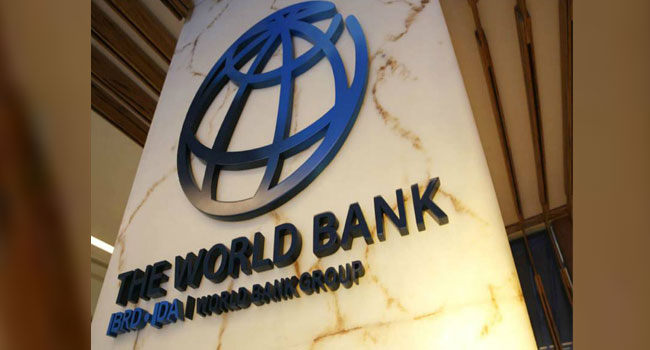Our Terms & Conditions | Our Privacy Policy
Economic reforms boosted govt revenue to N31tn – World Bank
Nigeria’s macroeconomic reforms have begun to yield results, strengthening the foreign exchange market and boosting government revenue to an estimated N31.9tn in 2024, according to the latest edition of the World Bank’s Nigeria Development Update report titled “Building Momentum for Inclusive Growth.”
The report, released on Monday, highlights that the consolidated fiscal position improved considerably in 2024, with the fiscal deficit shrinking from 5.4 per cent of GDP in 2023 to 3.0 per cent of GDP in 2024. This progress was largely driven by a surge in government revenues, which jumped from N16.8tn in 2023 (7.2 per cent of GDP) to N31.9tn in 2024 (11.5 per cent of GDP).
The World Bank credited these gains to ongoing macroeconomic and structural reforms, particularly in the foreign exchange and fiscal policy space. It noted that the improvements have helped to stabilise the economy, restore investor confidence, and lay the groundwork for broader development investments.
“Nigeria has made impressive strides to restore macroeconomic stability,” said Taimur Samad, the acting World Bank Country Director for Nigeria. “With the improvement in the fiscal situation, Nigeria now has a historic opportunity to improve the quantity and quality of development spending, investing more in human capital, social protection, and infrastructure.”
The World Bank further noted that reforms in the foreign exchange market have strengthened Nigeria’s external position, allowing for better resource allocation and a narrowing of the gap between official and parallel market rates. These adjustments have enhanced policy credibility and transparency in the FX market.
Despite the positive outlook, the bank warned that inflation remains high and sticky. However, it projects a decline in inflation to an annual average of 22.1 per cent in 2025, driven by the central bank’s sustained tightening stance and improving monetary policy credibility.
In his remarks, the World Bank’s Lead Economist for Nigeria, Alex Sienaert, stressed that further reform is critical for inclusive and sustained growth.
“International experience suggests that the public sector cannot sustainably generate growth and jobs by itself. Nigeria is no exception, particularly since public resources remain constrained,” he said.
The report calls for Nigeria to consolidate macroeconomic stability by addressing major infrastructure gaps, improving the business environment, fostering healthy competition, and expanding access to finance. These steps, it said, are necessary to achieve the federal government’s aspiration of transforming Nigeria into a $1tn economy by 2030.
While the services sector, particularly finance and ICT, continues to drive economic growth, the report warns that these sectors do not create jobs at scale, and most Nigerians remain excluded due to limited skills and opportunities. The World Bank advocates for a growth strategy that enables the private sector to lead job creation while the public sector focuses on essential services and infrastructure.
The Nigeria Development Update emphasises that redirecting public resources away from past unsustainable spending patterns towards development-oriented priorities could significantly reduce poverty and promote shared prosperity.
“Now, the challenge is to consolidate macroeconomic stability and ignite inclusive growth through deeper, wider structural reforms,” the report added.
Images are for reference only.Images and contents gathered automatic from google or 3rd party sources.All rights on the images and contents are with their legal original owners.



Comments are closed.